For dog owners, witnessing their furry companions struggle with digestive woes like diarrhea, gas, or constipation can be a source of worry and frustration. These issues not only disrupt your dog’s daily routine but can also signal an underlying imbalance in their gut microbiome, the complex ecosystem of trillions of microorganisms residing within their digestive tract. Fortunately, natural probiotics offer a safe and effective way to restore gut harmony and promote optimal digestive health in dogs.
This in-depth guide delves into the fascinating world of canine probiotics, exploring their profound impact on your dog’s digestive well-being. We’ll embark on a journey to understand the intricate workings of the gut microbiome, unveil the multifaceted benefits of natural probiotics, and equip you with the knowledge to make informed decisions about incorporating them into your dog’s diet.
The Gut Microbiome: A Thriving Universe Within
Imagine a bustling metropolis teeming with trillions of inhabitants, each playing a vital role in maintaining order and function. This isn’t a futuristic city, but rather an accurate portrayal of your dog’s gut microbiome. This remarkable ecosystem houses a diverse community of bacteria, fungi, and other microorganisms, existing in a delicate balance. These microscopic residents contribute significantly to your dog’s overall health, influencing digestion, nutrient absorption, immune function, and even mood.
Two primary categories of bacteria dominate the canine gut microbiome: beneficial bacteria (probiotics) and harmful bacteria (pathogens). A healthy gut thrives on a balanced ratio of these bacterial populations. Probiotics diligently work to keep pathogens in check, preventing them from causing digestive distress and potential health problems. However, various factors can disrupt this equilibrium, leading to a scenario where pathogens gain the upper hand.
Common Culprits of Gut Microbiome Imbalance
Several factors can upset the delicate balance within your dog’s gut microbiome, paving the way for digestive issues. Here are some of the most common culprits:
- Dietary Changes: Sudden transitions to a new diet, dietary indiscretion (ingesting something they shouldn’t have), or food allergies can all disrupt the gut flora balance.
- Antibiotics: While essential for treating bacterial infections, antibiotics don’t discriminate – they wipe out both beneficial and harmful bacteria in the gut. This can lead to digestive problems and require repopulation of good bacteria.
- Stress: Just like humans, dogs experience stress, which can manifest in various ways, including digestive upset. Stress hormones can disrupt the gut microbiome, weakening the good bacteria and allowing pathogens to flourish.
- Age: As dogs mature, their gut microbiome composition naturally changes. Senior dogs may experience a decline in beneficial bacteria, making them more susceptible to digestive issues.
- Underlying Medical Conditions: Certain medical conditions, such as inflammatory bowel disease (IBD) or leaky gut syndrome, can significantly impact the gut microbiome and contribute to digestive problems.
The Symphony of Probiotics: How They Support Canine Digestion
Natural probiotics are live microorganisms similar to the beneficial bacteria already present in your dog’s gut. When introduced through supplements or fermented foods, probiotics act like a well-rehearsed orchestra, harmoniously working to optimize digestion:
- Enhanced Breakdown of Nutrients: Probiotics possess enzymes that aid in the breakdown of complex carbohydrates, proteins, and fats in food. This improved digestion allows your dog to extract more essential nutrients from their meals.
- Unlocking Nutritional Treasures: Certain probiotic strains have the remarkable ability to synthesize essential vitamins, particularly B vitamins and vitamin K. These vitamins are crucial for various bodily functions, and probiotic production ensures your dog receives a steady supply.
- Nourishing the Gut Lining: Probiotics also generate short-chain fatty acids (SCFAs) through fermentation. These SCFAs serve as a valuable source of nourishment for the cells lining the gut wall, promoting gut health and proper intestinal function.
- Competitive Exclusion: Probiotics compete with harmful bacteria for space and resources within the gut. By effectively colonizing the gut lining, they create a physical barrier that hinders the growth and colonization of pathogenic bacteria, preventing them from causing damage.
- Regulating the Immune Response: The gut microbiome interacts extensively with the immune system. Probiotics can help modulate the immune response in the gut, reducing inflammation and alleviating symptoms like diarrhea and vomiting associated with digestive distress.
Beyond Digestion: The Broader Benefits of Probiotics
The benefits of natural probiotics extend far beyond just promoting digestive health. Mounting research suggests they can play a significant role in supporting your dog’s overall well-being:
- Strengthening the Immune System: A balanced gut microbiome is instrumental in maintaining a robust immune system. Probiotics can stimulate the immune response, helping your dog fight off infections and allergies more effectively.
- Improved Skin and Coat Health: The gut-skin connection is
The Gut-Skin Connection and Probiotics’ Role
The gut-skin connection is a well-established concept in veterinary medicine. A healthy gut microbiome fosters a healthy skin and coat. Disruptions in the gut flora can manifest as various skin issues, including:
- Dry, Itchy Skin: When the gut barrier weakens, it allows allergens and toxins to enter the bloodstream, triggering an inflammatory response that can manifest as dry, itchy skin.
- Hot Spots: These localized areas of inflamed, irritated skin are often linked to underlying digestive issues. Probiotics can help restore gut balance and alleviate symptoms like hot spots.
- Yeast Infections: Candida, a type of yeast, naturally resides in the gut. However, gut microbiome imbalance can lead to an overgrowth of Candida, causing yeast infections that manifest as skin irritation and discomfort.
Probiotics can help address these skin problems by:
- Reducing Inflammation: Certain probiotic strains possess anti-inflammatory properties that can help soothe and calm irritated skin.
- Strengthening the Gut Barrier: By promoting a healthy gut lining, probiotics prevent allergens and toxins from entering the bloodstream, reducing the risk of skin flare-ups.
- Modulating the Immune Response: A balanced gut microbiome supports a regulated immune response, preventing the overreaction that can trigger skin allergies and conditions.
Mental and Emotional Well-being: The gut-brain axis is another fascinating area of research, highlighting the bidirectional communication between the gut microbiome and the brain. Studies suggest that gut bacteria may influence mood and behavior. Probiotics that support a healthy gut microbiome may indirectly contribute to a dog’s mental and emotional well-being, potentially reducing stress and anxiety.
Probiotics as Allies in Managing Chronic Conditions:
For dogs with chronic digestive conditions like inflammatory bowel disease (IBD) or irritable bowel syndrome (IBS), natural probiotics can offer significant support:
- IBD Management: IBD is a chronic inflammatory condition affecting the intestines. Probiotics have shown promise in reducing inflammation, alleviating symptoms like diarrhea and vomiting, and improving overall gut health in dogs with IBD.
- IBS Relief: IBS is characterized by recurring episodes of abdominal discomfort, cramps, and diarrhea. Probiotics may help regulate gut motility, reduce inflammation, and alleviate IBS symptoms in dogs.
Choosing the Right Probiotic Supplement for Your Dog
With a plethora of probiotic supplements available, selecting the right one for your dog can feel overwhelming. Here’s a breakdown of key factors to consider:
- Strain Specificity: Different probiotic strains offer unique benefits. Opt for supplements containing strains clinically proven to support canine digestive health. Some popular strains include Lactobacillus acidophilus, Bifidobacterium animalis, and Enterococcus faecium. Consult your veterinarian for guidance on choosing the most appropriate strains for your dog’s specific needs.
- Potency and Viability: Look for supplements containing a high colony-forming unit (CFU) count, indicating the number of live bacteria per dose. Viability ensures the bacteria are alive and can effectively colonize your dog’s gut.
- Dosage: Dosage recommendations vary depending on the product, your dog’s size, and the targeted health concern. Always adhere to the manufacturer’s instructions or consult your veterinarian for personalized guidance.
- Formulation: Consider your dog’s preferences. Probiotic supplements come in various forms like capsules, powders, chewable tablets, and even liquid drops. Choose a format that’s easiest for your dog to tolerate and consume consistently. Some supplements are even formulated with enticing flavors to encourage acceptance.
Important Considerations and Safety
While generally safe for most dogs, probiotics can interact with certain medications or underlying health conditions. Here are some safety precautions to keep in mind:
- Consult Your Veterinarian: Always discuss introducing probiotics with your veterinarian, especially if your dog has a compromised immune system, suffers from a chronic health condition, or is taking any medications.
- Start Slowly: Introduce probiotics gradually to your dog’s diet, beginning with a small dose and monitoring for any adverse reactions like gas or bloating. These side effects typically subside within a few days. If symptoms persist, discontinue use and consult your veterinarian.
- Storage: Store probiotic supplements according to the manufacturer’s instructions. Some require refrigeration to maintain potency, while others have a shelf-stable formulation.
5,000+ People Saw Related Offers
- Pamper your pet! Discover natural flea & tick control, organic food, and more.
- Healthy pets start here! Shop organic food, natural supplements, & eco-friendly toys.
- Give your pet the best! Explore our range of natural products & accessories.
- Protect your furry friend! Find effective flea & tick control solutions now.
- Nourish your pet naturally! Discover delicious organic food options.
- Boost your pet’s health! Try our natural supplements for optimal wellness.
- Happy pets, happy you! Shop eco-friendly toys & accessories today.
Sponsored Contents ⓘ | Advertise Now
Natural Probiotic Sources for Dogs
In addition to supplements, you can enrich your dog’s diet with natural sources of probiotics:
- Kefir: This fermented milk drink is a delicious probiotic treat for dogs. Choose plain, unsweetened kefir and offer it in moderation due to the lactose content. Start with a small amount and monitor for any digestive upset.
- Plain Yogurt: Unsweetened, plain yogurt with live and active cultures can be a good source of probiotics for dogs. Opt for yogurt with minimal added sugar and artificial ingredients. Introduce it gradually and in small quantities, as some dogs may be lactose intolerant.
- Kimchi: This fermented Korean cabbage dish is a powerhouse of probiotics. However, due to its spiciness, it’s not suitable for all dogs. Offer a tiny, well-chopped amount as an occasional treat, monitoring for any digestive discomfort.
- Fermented Vegetables and Fruits: Beyond kimchi, a wider world of fermented vegetables and fruits can provide a probiotic boost. Explore options like:
- Sauerkraut: Fermented cabbage teeming with beneficial bacteria. Offer small amounts due to the high salt content and monitor for any signs of sodium sensitivity in your dog.
- Kombucha: A fermented tea containing probiotics and prebiotics (food for probiotics). Dilute it significantly with water before offering a small amount to your dog, as the carbonation and acidity can be irritating.
- Fermented Pickles: Similar to sauerkraut, fermented pickles offer probiotics, but be mindful of the sodium content. Choose low-sodium options whenever possible.
Remember: Introduce any new food slowly, monitoring your dog for any adverse reactions.
Prebiotics: Fueling the Probiotic Powerhouse
Prebiotics are a type of non-digestible fiber that acts as food for the good bacteria (probiotics) already present in your dog’s gut. Including prebiotics in your dog’s diet helps create an optimal environment for probiotics to thrive and maximize their benefits. Here’s a closer look at some excellent prebiotic sources for dogs:
- Chicory Root: A natural source of inulin, a prebiotic fiber that promotes gut health and nourishes beneficial bacteria. Chicory root can be added to your dog’s food in powder form or offered as a chewable treat.
- Bananas: Ripe bananas contain prebiotic fiber (fructooligosaccharides) that act as a prebiotic fuel source for good gut bacteria. Offer them in moderation as part of a balanced diet, and be mindful that some dogs may find them difficult to digest.
- Oatmeal: Cooked oatmeal is a gentle source of prebiotic fiber ideal for dogs with sensitive stomachs. The soluble fiber in oatmeal helps regulate digestion and provides sustenance for beneficial bacteria.
- Apples: Apples contain pectin, a prebiotic fiber that aids digestion and supports the growth of good gut bacteria. Just be sure to remove the core and seeds before offering them to your dog.
Creating a Probiotic-Rich Diet for Your Dog
By strategically combining natural probiotic sources with prebiotic-rich foods and potentially probiotic supplements, you can create a well-rounded dietary plan to support your dog’s gut health. Here are some tips for crafting a probiotic-rich diet:
- Consult Your Veterinarian: Discuss your dog’s individual needs and health status with your veterinarian. They can offer personalized recommendations on incorporating probiotics and prebiotics into your dog’s diet and recommend appropriate dosages for any supplements.
- Start Gradually: Introduce any new foods or supplements slowly, allowing your dog’s digestive system to adjust. Monitor for any signs of intolerance or digestive upset.
- Read Labels Carefully: When choosing commercial dog food, look for options enriched with prebiotics and probiotics. Be sure to check the ingredients list and guaranteed analysis to understand the specific types and quantities of prebiotics and probiotics included.
- Variety is Key: Offer a variety of natural probiotic sources and prebiotic-rich foods to ensure your dog receives a well-rounded spectrum of beneficial bacteria and fiber.
- Consider a Holistic Approach: A healthy gut microbiome is just one piece of the puzzle for optimal canine health. Combine a probiotic-rich diet with regular exercise, stress management techniques, and preventive veterinary care to keep your dog happy and healthy from the inside out.
Addressing Common Questions and Concerns About Probiotics for Dogs
Q: Can probiotics cause side effects in dogs?
A: While generally safe, some dogs may experience mild gas or bloating when first introduced to probiotics. These side effects typically subside within a few days as their digestive system adjusts to the increased presence of beneficial bacteria. If symptoms persist, discontinue use and consult your veterinarian.
Q: How long does it take for probiotics to work in dogs?
A: The timeframe for noticeable improvement can vary depending on the severity of your dog’s digestive issues, the chosen probiotic strain, and the overall health of their gut microbiome. Some dogs may experience relief within a few days, while others may take several weeks for their gut flora to rebalance and for them to experience the full benefits of probiotics.
Q: Do probiotics need to be refrigerated?
This depends on the specific product. Some probiotic supplements require refrigeration to maintain potency, while others have a shelf-stable formulation. Always follow the storage instructions on the product label to ensure optimal effectiveness.
Q: Are there any risks associated with giving my dog too many probiotics?
A: While uncommon, excessive probiotic intake can potentially disrupt the delicate balance within your dog’s gut microbiome. Stick to the recommended dosage on the probiotic supplement or consult your veterinarian for guidance.
Q: Can probiotics help with allergies in dogs?
A: Research suggests a connection between the gut microbiome and allergies in dogs. A balanced gut microbiome may support a healthy immune response, potentially reducing the severity of allergic reactions. However, more research is needed to definitively determine the role of probiotics in managing canine allergies. Consult your veterinarian for a comprehensive allergy management plan for your dog.
The Final Word on Probiotics for Canine Digestive Health
Natural probiotics offer a promising and natural approach to promoting digestive health and overall well-being in dogs. By understanding the benefits, choosing the right products, and incorporating them thoughtfully into your dog’s routine, you can help your furry friend maintain a happy and healthy gut. Remember, a balanced gut microbiome is a cornerstone of canine health, influencing digestion, nutrient absorption, immune function, and even mood. By harnessing the power of natural probiotics, you can empower your dog to thrive from the inside out!
Does your dog experience digestive problems? Have you considered introducing probiotics? Share your experiences and questions in the comments below! We’d love to hear from you!
5,000+ People Saw Related Offers
- Pamper your pet! Discover natural flea & tick control, organic food, and more.
- Healthy pets start here! Shop organic food, natural supplements, & eco-friendly toys.
- Give your pet the best! Explore our range of natural products & accessories.
- Protect your furry friend! Find effective flea & tick control solutions now.
- Nourish your pet naturally! Discover delicious organic food options.
- Boost your pet’s health! Try our natural supplements for optimal wellness.
- Happy pets, happy you! Shop eco-friendly toys & accessories today.
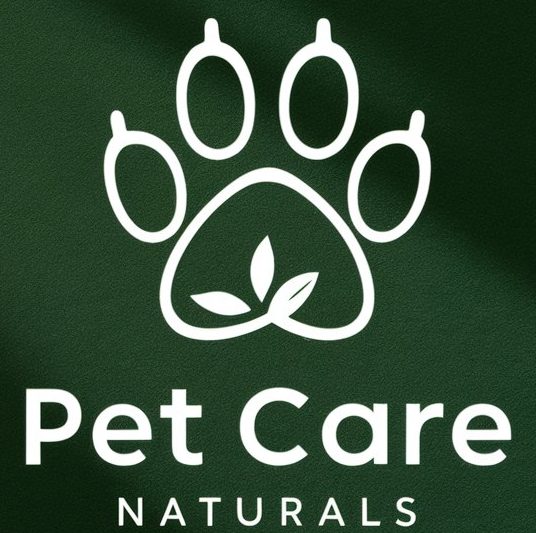
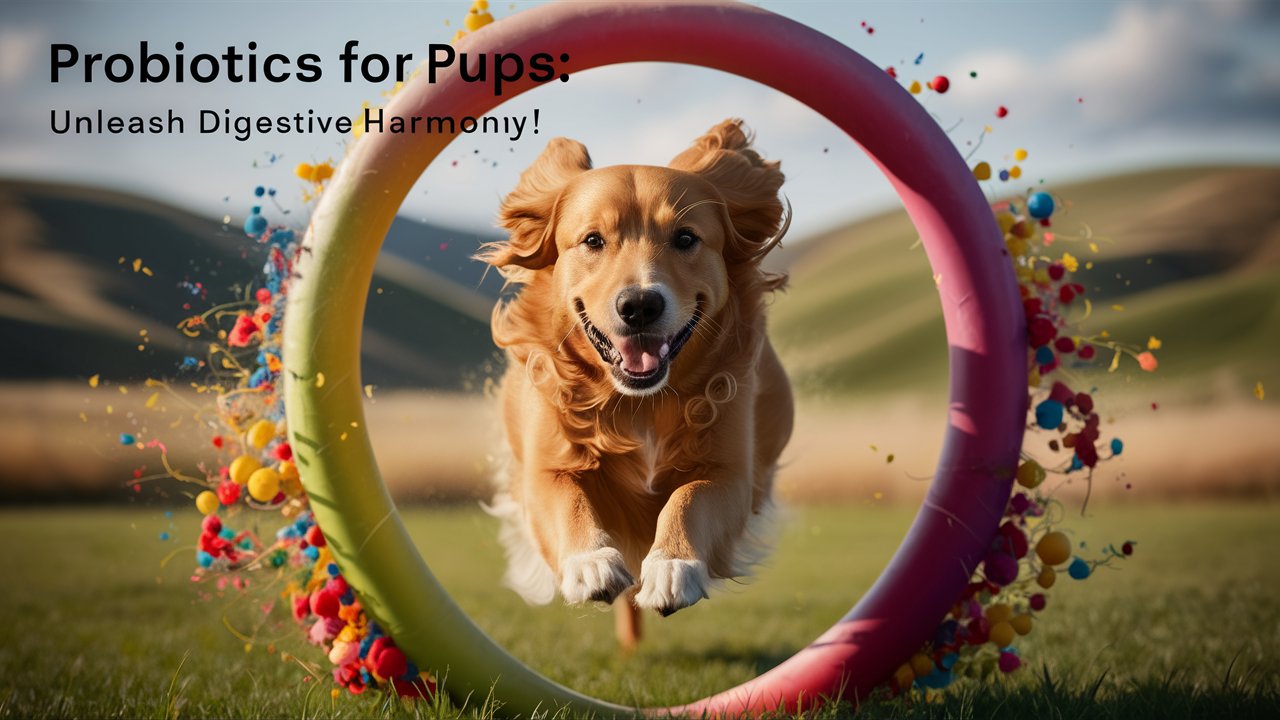



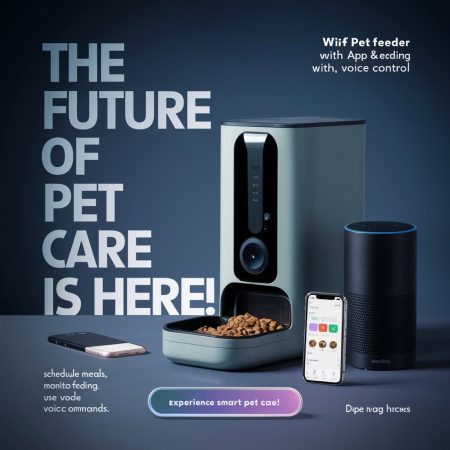


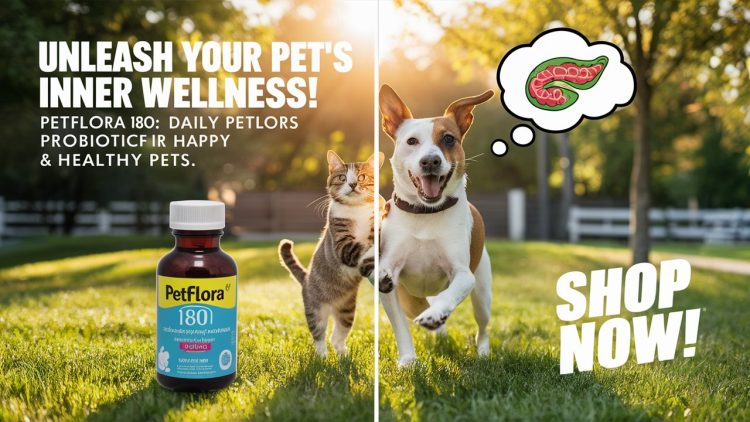
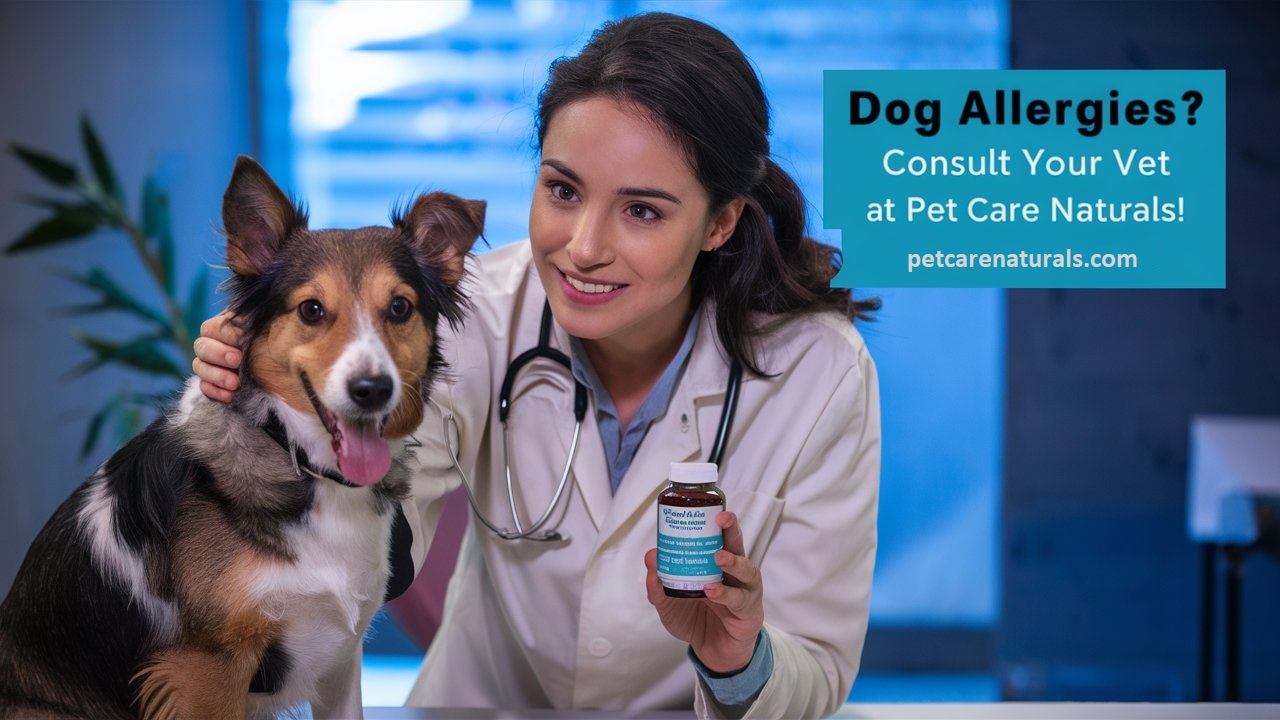
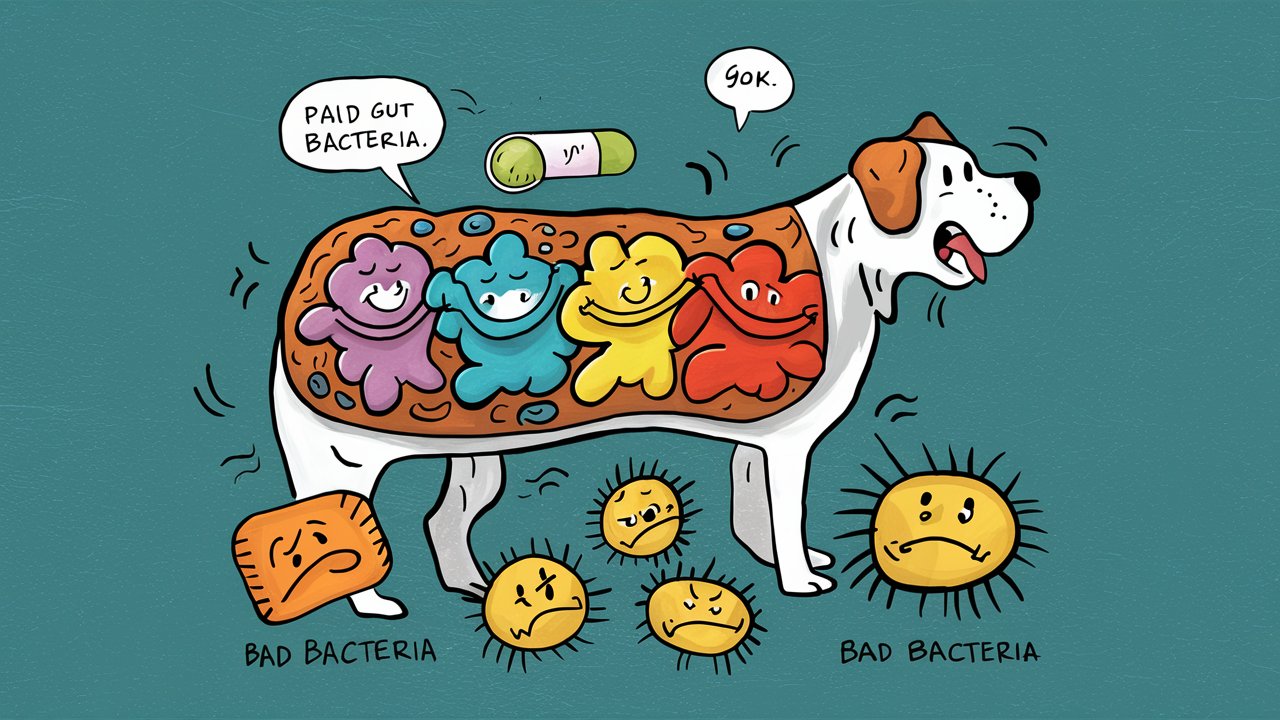
Wow, I never knew probiotics could be so beneficial for dogs! My dog, Luna, suffers from allergies and occasional skin irritation. I wonder if probiotics could help her
I’ve been considering giving my dog probiotics for a while now, but I wasn’t sure where to start. This guide has been incredibly helpful
My golden retriever, Max, has been experiencing ongoing stomach issues. This article has given me a much better understanding of how probiotics can improve his gut health. I’m so glad I came across this post!
⭐⭐⭐⭐⭐